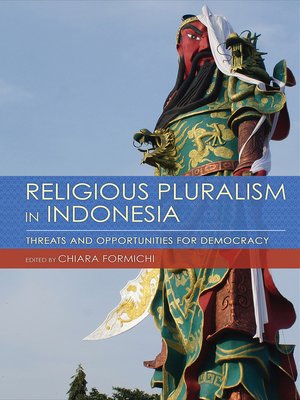Religious Pluralism in Indonesia
ebook ∣ Threats and Opportunities for Democracy · Cornell Modern Indonesia Project
By Chiara Formichi

Sign up to save your library
With an OverDrive account, you can save your favorite libraries for at-a-glance information about availability. Find out more about OverDrive accounts.
Find this title in Libby, the library reading app by OverDrive.



Search for a digital library with this title
Title found at these libraries:
| Library Name | Distance |
|---|---|
| Loading... |
In 1945, Sukarno declared that the new Indonesian republic would be grounded on monotheism, while also insisting that the new nation would protect diverse religious practice. The essays in Religious Pluralism in Indonesia explore how the state, civil society groups, and individual Indonesians have experienced the attempted integration of minority and majority religious practices and faiths across the archipelagic state over the more than half century since Pancasila.
The chapters in Religious Pluralism in Indonesia offer analyses of contemporary phenomena and events; the changing legal and social status of certain minority groups; inter-faith relations; and the role of Islam in Indonesia's foreign policy. Amidst infringements of human rights, officially recognized minorities—Protestants, Catholics, Hindus, Buddhists and Confucians—have had occasional success advocating for their rights through the Pancasila framework. Others, from Ahmadi and Shi'i groups to atheists and followers of new religious groups, have been left without safeguards, demonstrating the weakness of Indonesia's institutionalized "pluralism."
Contributors: Lorraine Aragon, Christopher Duncan, Kikue Hamayotsu, Robert Hefner, James Hoesterey, Sidney Jones, Mona Lohanda, Michele Picard, Evi Sutrisno, Silvia Vignato







